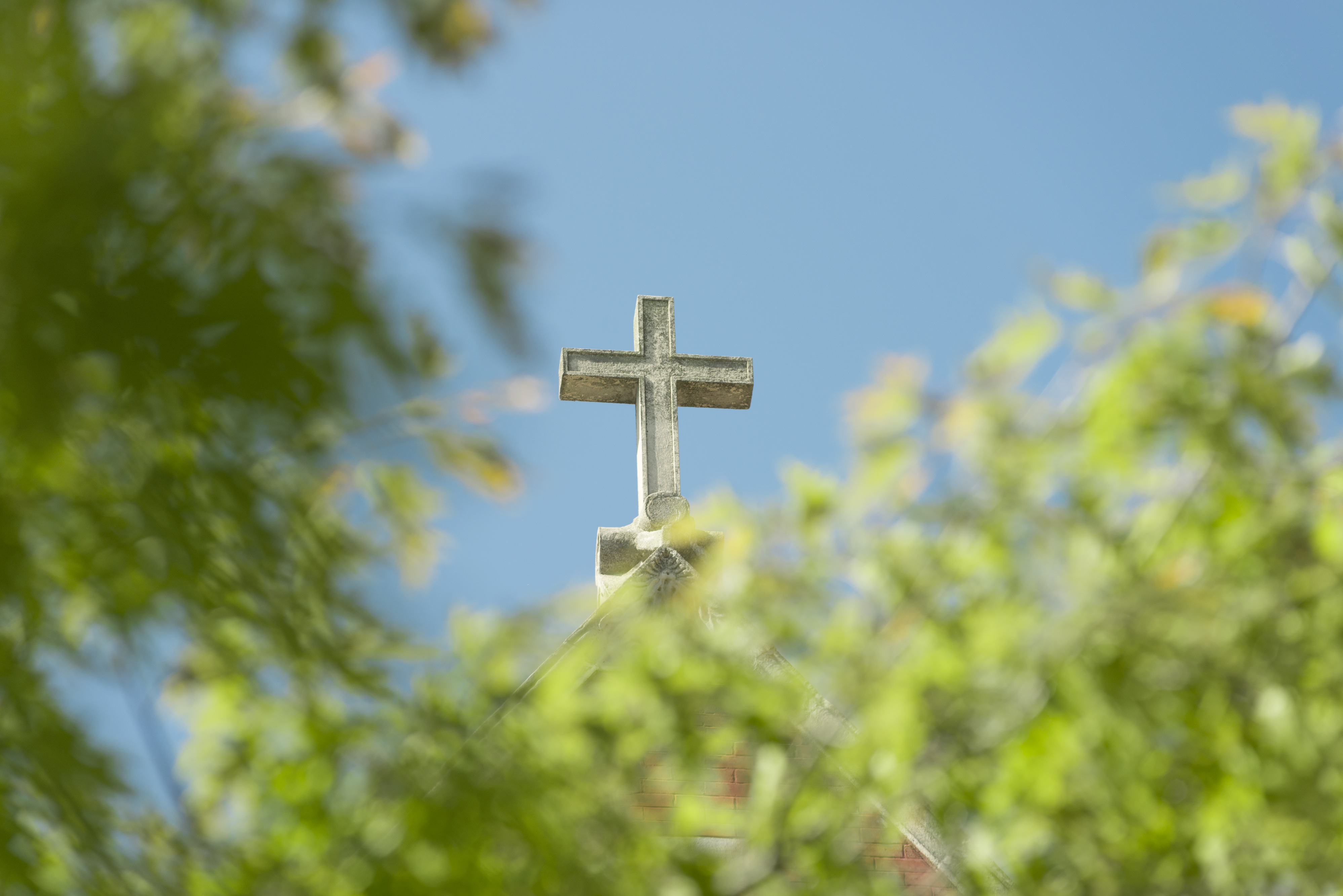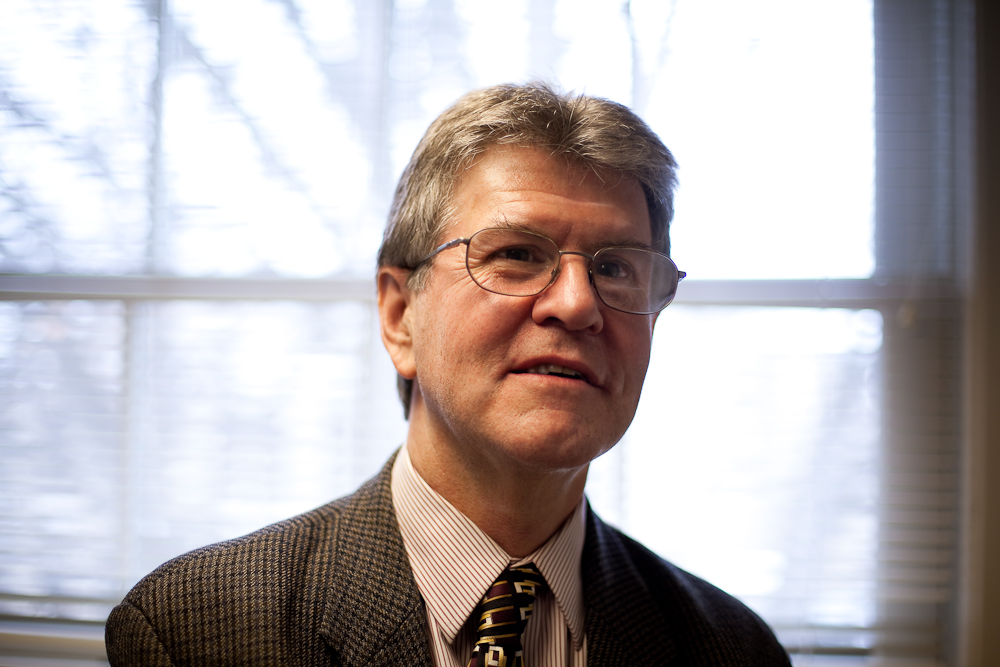Look to History to Learn How Christians Responded (Good and Bad) to Epidemics, Baylor Distinguished Professor Says
'The Church has to deal with what has historically been its normal situation,' scholar says
Follow Baylor University Media and Public Relations on Twitter: @BaylorUMedia
By Kaitlyn Rieper, marketing specialist, Baylor Marketing and Brand Strategy
WACO, Texas (April 7, 2020) – As COVID-19 has caused churches across the world to restrict in-person gatherings and completely change the way worship is approached, many are grappling with what Christian faith looks like right now.
Baylor University’s Philip Jenkins, Ph.D., Distinguished Professor of History and co-director of the Program on Historical Studies of Religion in the Institute for Studies of Religion, led the recent webinar “Epidemics: How the Church Has Responded Throughout History” for a group made up mostly of self-described pastors from throughout the U.S., Canada and the U.K. Jenkins began the lecture by offering an unexpected word of encouragement.
“We are almost returning to a historical normal for the Church. Through human history, plagues and diseases and epidemics have been an absolutely normal feature of life. For those of us who have grown up in the last hundred years, this was something that happened in other eras and in other places,” said Jenkins. “Normality has returned. The Church has to deal with what has historically been its normal situation.”
Jenkins went on to posit several questions related to the Church and epidemics. The following outlines those questions paired with Jenkins’ answers, which relate a long history of Christian response to plague with what we are experiencing today.
Q: How has the Church responded throughout history to epidemics?
JENKINS: When the Bible looks at plagues and epidemics, it reflects a worldview that sees those as being directly imposed by God, commonly as a punishment. You can find many stories of this. For instance, in Numbers 25 you find the story of Phineas. The children of Israel have misbehaved. They've betrayed God's orders and God sends a plague to punish them. It's a very, very disturbing story in so many ways, but the idea was it was something that came from God.
All through history Christians have had to decide how to live with this. They know God sends plagues, so what do they do? But in a sense, they were normally much less concerned with thinking about those issues of causation as they were response. How did ordinary Christians, how did Christian clergy respond?
The worst thing that some communities, if they believed God was angry, would do is they would organize great communal gatherings to show public penance. In old times, Christians went out to assist patients personally, and now today we know that is the worst thing to do in cases demanding quarantine or isolation. Those are some of the most effective ways of spreading the disease. But others turned to scriptural resources and looked for different ways of expressing trust in hope. In so many cases, what they did not only preserved the church, but expanded it.
In the 250s Roman Empire, a time when Christianity was strictly forbidden, a deadly plague struck the empire. Out of that, Christians oddly took comfort. We have letters from some of the greatest Christian leaders of the time. What they wrote is still some of the most inspiring literature you will ever read about plague and pestilence.
Dionysius says, for us, this is a kind of festival. What he is not saying in that disturbing-sounding remark is that all the pagans are going to die. He's saying that pagans are going to die, Christians are going to die, but this gives us an opportunity to live up to the Gospel. A plague is a time of schooling, a time of education. He also says that this is virtually martyrdom. It is a kind of martyrdom. We are giving our lives for others. He says that Christians went out into plague and disease-stricken neighborhoods, they gave comfort and aid to sick people, although they knew very well that they were going to catch the disease themselves.
Other people, when they observed the Christians doing this, were very interested, were very impressed. That is one of the great moments of growth of the Christian Church.
Bishop Cyprian says, “What credit is it to us Christians if we just help Christians? Anyone can do that. We have to help not just the household of faith, but everyone.” These people had no capacity to heal something like the plague. What they had was the capacity to aid victims to make their last hours as easy as possible to bring them those consolations and comforts.
Q: What are some of the issues that Christian leaders had to face?
JENKINS: The Reformation occurred at a time of some absolutely horrible outbreaks of plague. Martin Luther, who had opinions about absolutely everything, wrote a wonderful essay, which still repays reading today, on whether it was legitimate for Christians to flee from the plague. The question seems strange, but what he was thinking was if plague is sent by God, who are we to resist it? Should we not just suffer and die and stay in place? And Luther, who was a very practical man, said, “Absolutely not.” Christians through history have fled from danger. What he did say is that Christians have a duty to stay and help as best they can.
If you imagine living in a world where plagues and epidemics were so strong, as opposed to what we regard as this bizarre visitation, assume you thought this was normal, just think how that might reconstruct the way you view your life. There’s a lot of literature on this. People made a point of saying, ‘we rely on things like strength, money, power, beauty. None of those will defend us. We have to rely on God.’ That idea of reliance is so strong.
In England in 1665, plague breaks out. It hits a couple of big cities, but thankfully it does not spread far beyond those cities. In a small village called Eyam, there was a cloth merchant who orders samples from London. The cloth samples bring fleas, fleas bring plague and people start to die. And then the people in that village do something which earns them a place in the Christian story.
The village is absolutely divided on the middle between an Anglican, William Mompesson, who is their rector, and a Puritan minister called Thomas Stanley who agree on nothing. But Mompesson and Stanley agree that the plague is so dangerous that the people of the whole village must self-isolate, must cut themselves off from the rest of the world even at the cost of their own lives. Because if they flee, if they go to nearby great cities, then pretty soon the plague will spread through the rest of England and instead of a few hundred people dying, tens of thousands, hundreds of thousands of people will die. Today we hear about self-isolation and social distancing and my thoughts always go back to that village, Eyam.
Q: We live in a world where we now know where plagues and epidemics come from and how to mitigate their spread. How do we understand something like this today? What are the resources we can use?
JENKINS: We, for many years, have lived in an age of comfort when we thought the world was constantly improving. Suddenly, we have to think about very basic realities. We have to rethink so many of our assumptions about the foundations of our society, our faith, and we realize that so many of those evils are not things that happened in distant times and different places. They are happening here and now with us.
Perhaps one of the most influential texts that Christians have referred to is Psalm 91. I strongly recommend that you read it. It’s about not being afraid of the pestilence that walks at night nor the arrow that flies by day. It’s a song and hymn about confidence and trust. Whenever there has been a plague, Christians have turned to Psalm 91 because it represents a hope that they will survive, that they will manage to last as long as they can, that they will get through, their families will get though. But, there’s always in those invocations a sense of realism.
The great Baptist leader Charles Spurgeon, in the 19th century, said that in a time of disease, of epidemic, of cholera, the greatest weapon that the Christian had was Psalm 91. Spurgeon was not unrealistic. He knew that good Christians died of plague, but he was saying if you wanted to find hope and comfort, if not in this world, then the world to come, where you found it was in something like Psalm 91.
As Dionysius said, I think an epidemic, a plague, can be and should be a schooling and there are many lessons. We will get so many of them wrong. But, can I stress this? There are such rich resources in the Christian tradition, and maybe now more than ever, we need to be looking at that Christian history. All ages are equidistant from eternity. We and Bishop Dionysius and the rector of Eyam all live in one age before God. What I am suggesting is that they have lessons for us.
How do Christians respond to plagues during the modern health care age, especially for people who want to respond as the early church did by being present with the sick, but also caring for themselves and their households?
JENKINS: I am anything but a medical professional. There is so much advice out there from expert authorities, from medical authorities, from the CDC, from government agencies on this and Christians need to follow that absolutely scrupulously. But, for example, they can be in communication with people who might be alone or isolated. They can find out about people who are in need and try to get them the resources they can while following absolutely all of those protections. It seems to me that Christians can be perfectly proactive in finding out about situations like that.
The point is we live in an age where we have these very educated, qualified, informed authorities who followed the divine light within them to produce all this knowledge. We obey that, but we can still be helpfully nosy, and there are still ways of getting safe items and products to people who need them. I think one of the greatest things is expressing concern.
ABOUT BAYLOR UNIVERSITY
Baylor University is a private Christian University and a nationally ranked research institution. The University provides a vibrant campus community for more than 18,000 students by blending interdisciplinary research with an international reputation for educational excellence and a faculty commitment to teaching and scholarship. Chartered in 1845 by the Republic of Texas through the efforts of Baptist pioneers, Baylor is the oldest continually operating University in Texas. Located in Waco, Baylor welcomes students from all 50 states and more than 90 countries to study a broad range of degrees among its 12 nationally recognized academic divisions.
ABOUT THE BAYLOR INSTITUTE FOR STUDIES OF RELIGION
Launched in August 2004, the Baylor Institute for Studies of Religion (ISR) initiates, supports and conducts research on religion, involving scholars and projects spanning the intellectual spectrum: history, psychology, sociology, economics, anthropology, political science, epidemiology, theology and religious studies. The institute’s mandate extends to all religions, everywhere, and throughout history, and embraces the study of religious effects on prosocial behavior, family life, population health, economic development and social conflict. For more information, visit www.baylorisr.org.

